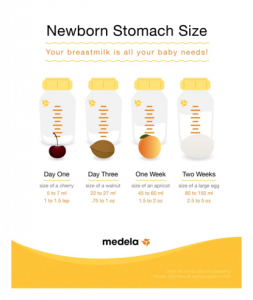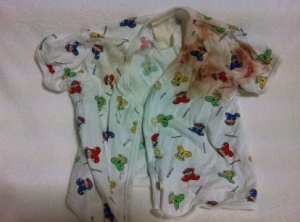Breastfeeding has many benefits for babies and mummies. However, it is a skill that needs to be picked up by both mother and baby. Some may learn it faster than others, but contrary to what most mums think, this learning process may not be instinctive nor is it one that naturally falls in place for some of us. In fact, many variables make breastfeeding challenging for a majority of mothers, even those who are not first-time breastfeeding mums.
Often, breastfeeding is an emotional process. It is the next immediate emotional rollercoaster you ride on after birthing your baby. Do not be surprised if you feel intense feelings from time to time and there is nothing to be ashamed of if you decide it is necessary to prioritise your family’s well being and opting for infant formula instead.
To provide solidarity for mums who may be struggling during their breastfeeding journey, we ask our friends to share about their own breastfeeding woes and how they eventually handled them.
Some breastfeeding mum don’t have enough support
One of the most common encounters amongst our friends is a lack of support for their breastfeeding journeys, largely from extended families, particularly those with whom they live with. Husbands, who may or may not be supportive themselves, may feel trapped between his wife and his other family members.
When members of the household are not equipped with breastfeeding knowledge or unwilling to respect a breastfeeding mother’s decision, it gives rise to tremendous pressure for the breastfeeding mother to “perform” and/or persist in breastfeeding. There may be a domino effect from these pressures which add additional stress onto the new mother.
Some of our friends mitigated the situation by attending breastfeeding courses with their husbands during their pregnancy, and, share nuggets of breastfeeding knowledge with extended family gradually over the course of their pregnancy.
Equipped with breastfeeding knowledge, you can also take the chance to gradually and gently set expectations with household members on how it might be like during breastfeeding, so that they would be mentally aware of what it entails. Adjustments and compromises can be made as you go along, to reach a balance that works for everyone in the family.
Breastfeeding mums believe that they do not have enough breast milk
It can be devastating and stressful for breastfeeding mothers if they experience a delay in milk coming in, are not aware of how little baby actually needs initially or, have to endure opinions of this nature.
One of our friends broke down in tears after trying to express breast milk for the first time, because all she managed was a tiny ring of milk that covered the base of a milk bottle, in addition to having to endure comments that her baby was inconsolable from being hungry due to her insistence to breastfeed. Unknown to her at that time, the amount of breast that she managed to express is actually just about the amount her newborn baby can stomach.

Newborns only require a very small amount of breastmilk.
Knowledge gives rise to confidence that we are progressing in our breastfeeding journey. With the necessary breastfeeding knowledge, you are less likely to panic, feel out of control when you encounter situations that may not seem to be in your favour.
Breastfeeding mums endure sore and cracked nipples
Almost every breastfeeding mother has experienced sore / cracked nipples at least once, usually in the beginning of their breastfeeding journey. This commonly happens because baby may not yet have a correct latch, or, when mums have sensitive nipples that suffer abrasion from having to repeatedly

Cracked and bleeding nipples during the start of your breastfeeding journey can be nerve-wrecking for new mums.
Photo credits: Estella Goh
The breastfeeding mother can bleed from her nipples due to repeated latching after abrasion and the baby may even swallow blood from her mother’s nipple. The pain and sight can be scary for a first-time mum, as she struggles with getting her baby fed while riding through her physical pain.
Breastfeeding mothers can apply lanolin cream, nipple relief cream or breastmilk to relieve themselves of sore and cracked nipples.
Breastfeeding woes with mastitis
Mastitis is an infection that occurs from plugged milk ducts in your breasts. Usually, this can be encountered at any point in your breastfeeding journey, especially when mums do not empty your breasts of breast milk efficiently enough.
Symptoms include fever and flu-like symptoms as well as a pair of painful, rock hard breasts. Mastitis may need to be treated with an antibiotic treatment, during which you may have to pump and throw away breast milk within 2 hours each time you consume the antibiotics. Wasting breast milk is a huge source of distress or breastfeeding mothers, who may already find it difficult to provide enough milk for their baby.
Cold cabbage leaves work to reduce milk supply quickly and are very effective in reducing engorgement. They could be used in initial treatment of mastitis, by leaving these cold cabbage leaves on for about 5-10 minutes. As this method is also used by breastfeeding mums who wish to reduce their milk supply, remember not to leave them longer for 10 minutes as some may experience a reduction in breastmilk thereafter.
Having to express breast milk in unsuitable environments
Not all workplaces are breastfeeding-friendly and breastfeeding mothers who need to return to the workforce may not have a suitable place to express and collect their breast milk hygienically.
Several mothers reported that they were required to express their breast milk in the toilets or storerooms. To manage the situation, they suggest procuring a suitable container, which you can sanitize daily, to hold your breast pump, parts and bottle during expressing. At the very least, the surfaces that are in contact with your pump equipment are clean!
Travelling for work while breastfeeding
Many working mothers have to travel on work assignments. In order to continue giving their babies breast milk, they need to ensure that their milk supply does not drop or prevent themselves from suffering infections such as mastitis, breastfeeding mothers have to work around their pump times and/or figure out how to transport expressed breast milk from one country to another.
Our friend, Florinda Tay, felt compelled to share her knowledge on preserving and transporting expressed breastmilk on a work trip in her photo album here: https://www.facebook.com/florinda.tay/media_set?set=a.10156206580292794&type=3
Photo credits: Florinda Tay
We hope that these true stories of breastfeeding struggles can give you some insights on how every breastfeeding mother may experience their own challenges. Hopefully these stories can help support and encourage you on the tough journey of breastfeeding.
We’d love to hear your breastfeeding stories too, share with us in the comments below!



